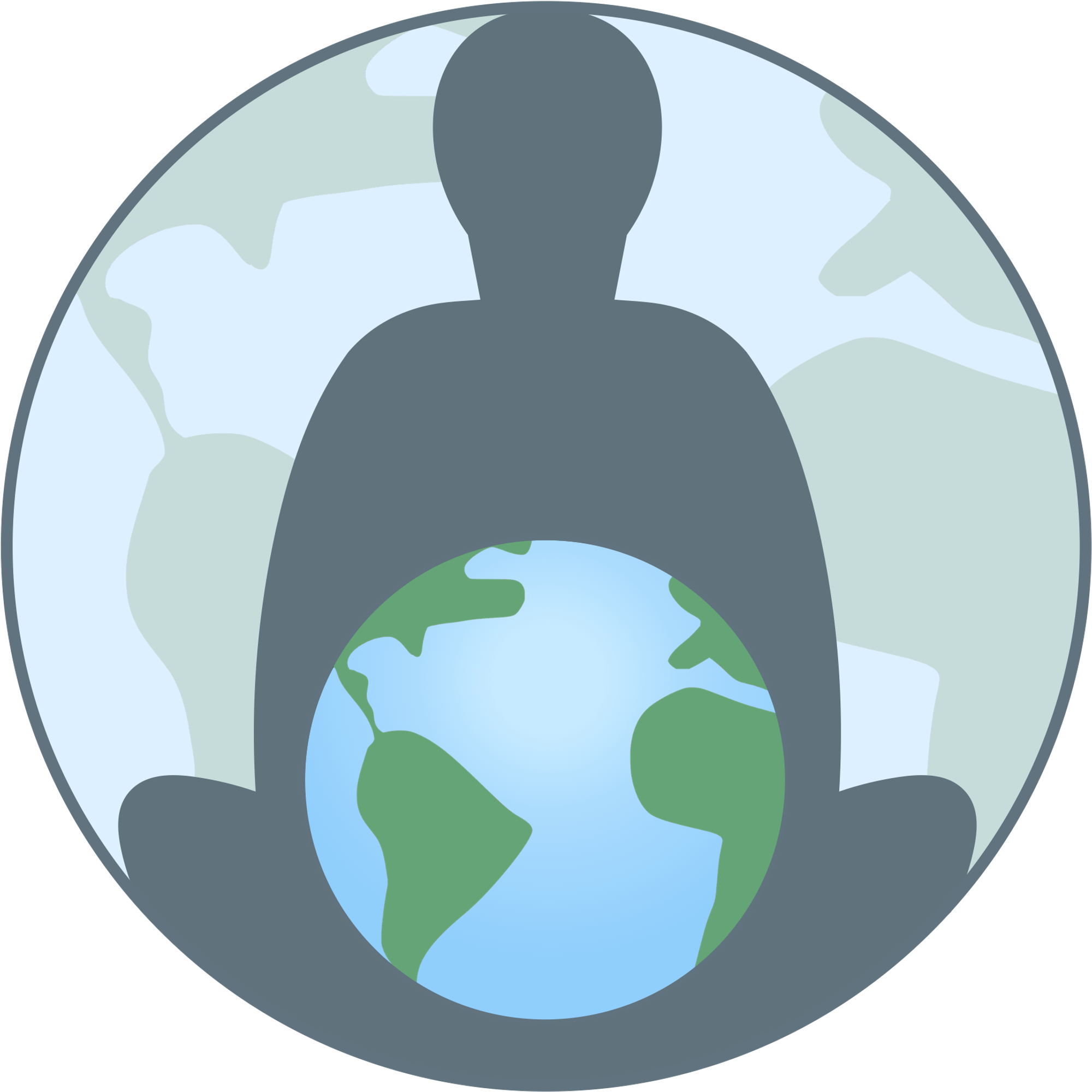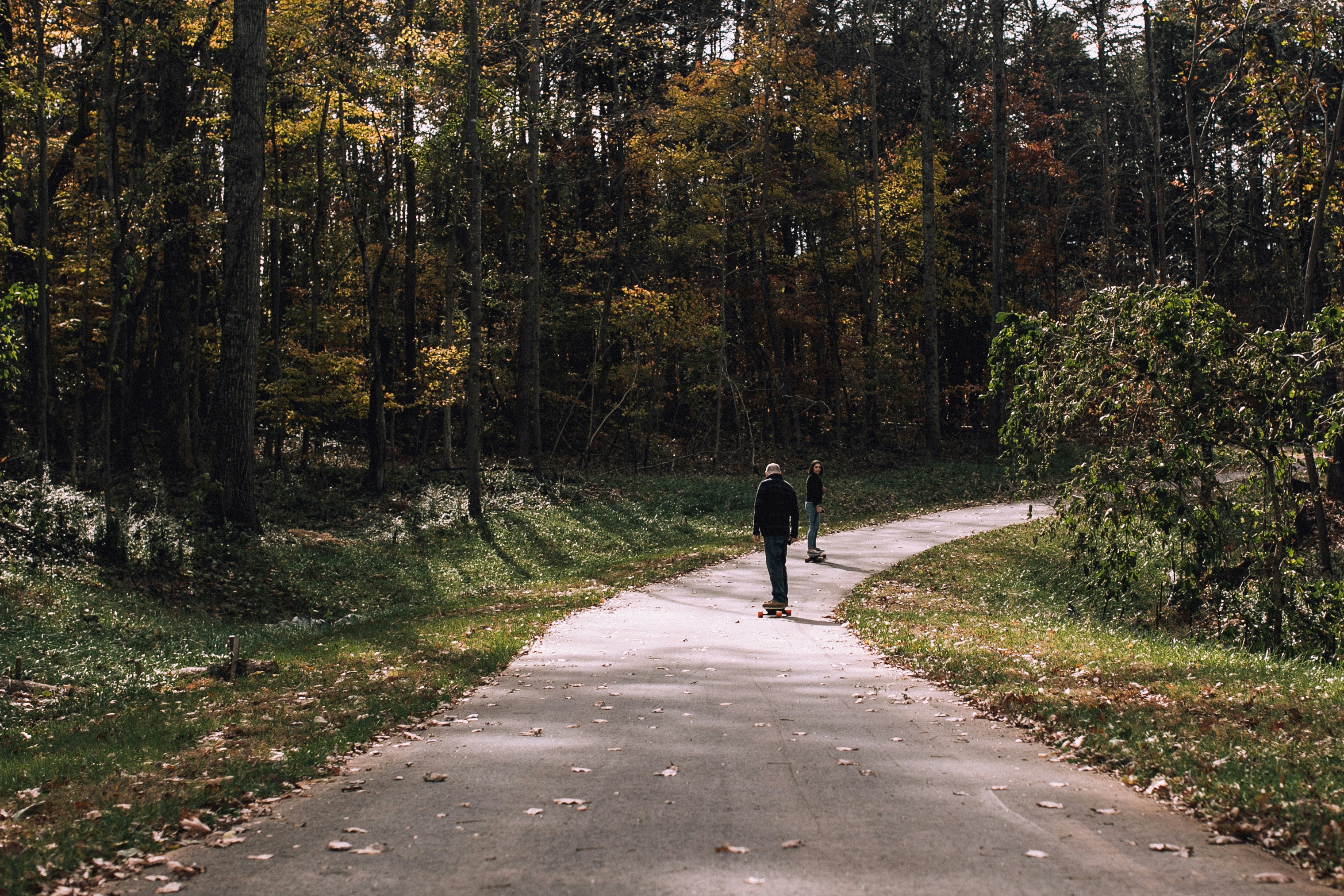The following is a revision of an essay I wrote ten years ago. It explores a question I still ask: What’s the way to happiness?
Two roads diverged in a wood, and I — I took the one less traveled by, and that has made all the difference.
–Robert Frost
In this society, we are raised to make our own way in the world. We are taught to seek status and recognitIon, produce goods and services, build families and financial security. While all these tasks have value, few of us ask whether or not following this road takes us where we want to go.
Here’s what it promises: If we succeed in society, we will feel good in our hearts.
More and more, I’m realizing society’s road doesn’t lead me to happiness. Sure, I’ve managed at times to gain, produce, and build. But I’ve also suffered losses and failures. I built a high-status career, but spinal problems ended it. I’ve traveled to lovely places but felt haunted by problems at home. I’ve worked hard on Mindful Biology, but it hasn’t covered my expenses.
We can play some good hands in the casino of Life, but loss, illness, and death remain in the deck.
The jaggedness of human life is obvious, and society-at-large insists we have but one way to go: grapple for peaks and stay out of chasms as long as we can.
The prescribed road assumes happiness tracks circumstance. It assumes that as life goes well or badly, in lockstep we feel happy or miserable. Should we bet on this assumption?
It it true that bad times do–rather predictably–cause bad feelings. Yet it is possible to meet difficulties with heart, move through the pain, and come out feeling contented (and even enriched) despite them. We’ve all heard stories along these lines, and many of us have lived our own versions. So in this sense, there is no lockstep between circumstance and happiness.
Also, sometimes life lines up with expectations, but happiness is elusive. One problem is the way societal values promote lifestyles, relationships, or occupations that often don’t feel right once we secure them. Another is inner conflict, so core unhappiness remains despite an outward shell of success. I’m speaking from personal experience here.
There must be folks who’ve built true happiness along the conventional path. But there are so many exceptions and flaws, it seems natural to seek alternatives.
Meditative traditions of the East and contemplative ones of the West offer many. They guide us to feel less enslaved by circumstance and more settled in our souls. They tell us we need not feel destroyed by losses, which are—of course—inevitable. They show us how worldly gain often feels shallow and unsatisfying. They guide us to meet life’s jaggedness with equanimity.
Wisdom traditions call us to find solace inside, but they also encourage us to behave helpfully and ethically outside. We might spend long periods in seclusion, building steadiness and faith, but sooner or later we find ways to help other beings. If we don’t serve the world in some way, we are simply escaping it.
My ability to remain steady–independent of circumstance–has been increasing bit-by-bit for years. So has my capacity to serve others. As long as I can, I will do my best to exit the freeway of modern stress and follow a gentler path.
Here are some steps that have seemed pivotal to me:
Befriend consciousness.
I explore my inner experience, settle into it with less resistance, and soften it when I can. By accepting the fact of my emotional feelings and bodily discomforts, I naturally begin to lessen them.
When I notice that my emotional state is agitated by fear, grief, or desire, I feel how it lands in body. I see where over-reactions, mental habits, and resistances make my situation feel worse than it needs to. Once I’ve accepted my experience, I can gently adjust it. Angst tends to lessen and what remains feels easier to bear.
Of course, one of the most useful techniques is breathing. We can take some deep breaths, feel the sensations of airflow and bodily movement, and keep our focus on the present moment. Stress naturally softens when we quit fighting the truth of our experience and simply breathe.
Another useful tool is imagination. Picturing of a beautiful landscape or a beloved friend or pet feels settling. The richer the imagined experience, the more grounded and peaceful I feel.
You might wonder: if it’s possible to generate peaceful feelings, can we generate ecstatic ones? Yes, it can be done, and sometimes that feels helpful. I’m learning, however, that a state of ecstasy feels less necessary as I find contentment. My desire for rapture is born from dread of despair. The less I feel haunted by desolation, the less I desire ecstasy. Contentment is enough. Besides, craving or clinging to peak experiences invites cycles of anxiety, longing, and frustration.
Help living beings:
Note that the term ‘living beings’ includes one’s own body and mind. Rather than judging and stressing them (like we often do), we can support them with acceptance and compassion. We can help our bodies and minds by eating well, exercising, opening our hearts, and meditating.
As we do, we find ever-increasing energy for helping and nurturing other beings. These may be family members, plants in the garden, or animals in the wild who need protection from pollution and degradation. There are myriad ways to support others.
Which is good, given how people differ in their interests and capacities. If we’ve been badly traumatized, we may feel so depleted that we are able to do only a bit, here and there, to help. Maybe watering a single houseplant is all we can manage. That’s okay.
There’s nothing to be gained by judging our limitations harshly. Yet as we spend more time supporting Life, we free up resources. Gradually, we may find more capacity to assist others, to take on more.
Enlarge perspectives:
One of the surest methods for sidestepping angst is to focus on the Big Picture. We are products of long histories, both evolutionary and cultural. Genetic and historical factors play huge roles in our lives. We have fewer choice points than we usually think.
Even when we seem to make decisions, our selections are strongly conditioned. Contrary to widespread belief, life trajectories are not constructed by personalities; they’re shaped by history and circumstance. We aren’t individuals acting in the world so much as world processes with delusions of individuality. Recognizing this, we can and should feel less judgmental of ourselves and others.
Consider that multicellular life has been evolving for hundreds of millions of years in a cosmos that’s been expanding for billions. The scale of the universe defies understanding. No matter how tiny you imagine yourself in the face of that expanse, you’re tinier. It isn’t possible to grasp the full truth of our situation. Individuality must be less important than we imagine, given how we adrift we are in the midst of so much space. Just as our hominid ancestors did in long-forgotten landscapes, we’d do well to huddle together for comfort and support.
And even when we do find safe havens, suffering is all around us. Many people are struggling. I often must admit that no matter how challenging my circumstances feel to me, there’s likely to be someone, somewhere, who would consider them a big improvement over their own.
Enlarging my perspective in these ways tends to keep me from contracting in my loneliness, grief, and worry. I feel less ashamed, less stricken, and less alone.
Awe, Love, and Wholeness:
What’s just been described is a good path to the qualities this site emphasizes: Awe, Love, & Wholeness.
- Awe arise naturally as we learn the power and subtlety of our human consciousness. There is something deeply profound about feeling the body breathe, about accepting the present moment, about surrendering to what is. The feeling of Awe is the most powerful antidote for the delusion that we must make reality other than what it is.
- Love arises when we feel supported, and it inspires us to support others. All of us have been helped in our lives. And when we feel the value of other beings and empathize with their struggles, we feel called to help, to Love. At its most mature, helping comes naturally, without force, stretching but not overwhelming our capacities.
- Wholeness becomes obvious as we broaden our perspective. As outlined above, we are small creatures in a huge, all-encompassing cosmos. No individual story is truly individual; each is a subplot in a much larger saga, written by forces far beyond our control. Some people view these forces as mechanical and random; others think they are divine and intentional. Either way, we are part of something big and amazing.
We can find our way to Awe, Love, and Wholeness. We can follow a less-travelled road. Ancient spiritual traditions and modern psychologies offer detailed maps. My own path has been charted by such ancient and modern wisdom, and it has been further laid down by Mindful Biology.
However we worship, learn, or practice, what’s important is to take heart and have faith. We will find our way.

